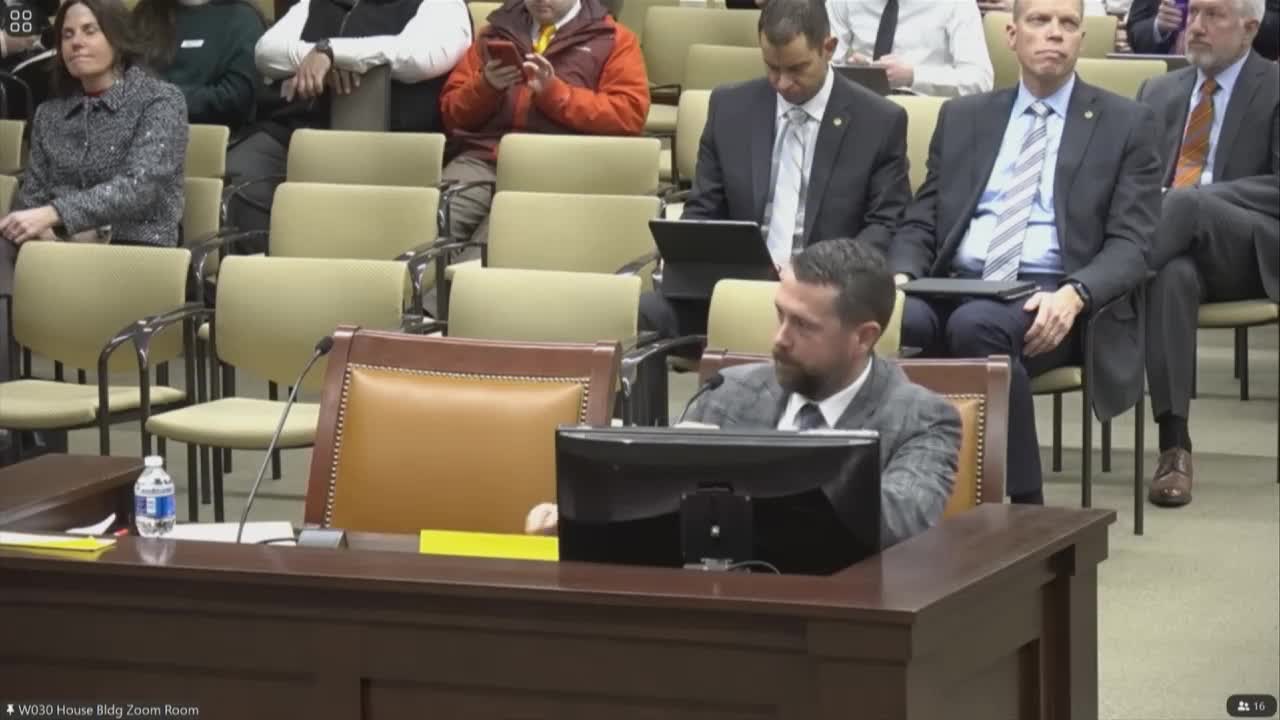Committee advances HB465 to formalize state-city public-safety agreements; Salt Lake City officials warn against coercion
Get AI-powered insights, summaries, and transcripts
Subscribe
Summary
HB465 would require "cities of the first class" that receive homelessness mitigation dollars to enter formal agreements with the Department of Public Safety and allows activation of a rapid-response team for persistent open-air drug markets or camping. The committee advanced the bill after testimony from Salt Lake City and municipal associations.
Representative Snyder presented HB465, a bill he said is intended to formalize collaboration between the Department of Public Safety (DPS) and certain municipalities to address concentrated public-safety issues tied to homelessness, open-air drug markets and sustained camping.
"HB465 at its core is really about formalizing collaborative opportunities," Representative Snyder said, describing the proposal as requiring cities of the first class that receive homelessness mitigation dollars to enter an individualized agreement with DPS. He said the agreements are meant to be "narrowly tailored" and that a rapid-response team could be used in rare instances where open-air drug markets or persistent camping are not being addressed locally.
Salt Lake City Mayor Erin Mendenhall testified that while the city has stepped up public-safety efforts and created a public dashboard of enforcement and seizures, she warned that a statutory requirement that "penalizes us if we do not [enter into a partnership] is not real collaboration. It is coercive," and said such an approach risks damaging trust between levels of government.
Cameron Dale of the Utah League of Cities and Towns and David Spadafore of the Utah Chiefs of Police Association both urged caution. Dale said the League's members were concerned about precedent — specifically the possible withholding of gas-tax funds to compel agreements — and raised questions about how the rapid-response team would coordinate with local police, fire and EMS. Spadafore said local policing operates as "a four-legged stool" (policing, jail space, prosecutors and courts) and said the bill could create command-and-control and records-management conflicts if implemented as drafted.
Supporters, including members of the business community, said accountability is necessary. Mary Catherine Perry of the Salt Lake Chamber said the chamber "believes that accountability is important" and that public-safety plans should have measurable accountability.
Representative Wilcox moved the bill to the floor. The committee voted to advance HB465; the record shows the committee acted to pass the bill out with a favorable recommendation and proceeded to the next agenda item.
Ending: The bill will go to the full chamber; committee discussion emphasized coordination questions, the scope of the rapid-response team, and whether state enforcement triggers would undermine municipal authority and trust.
